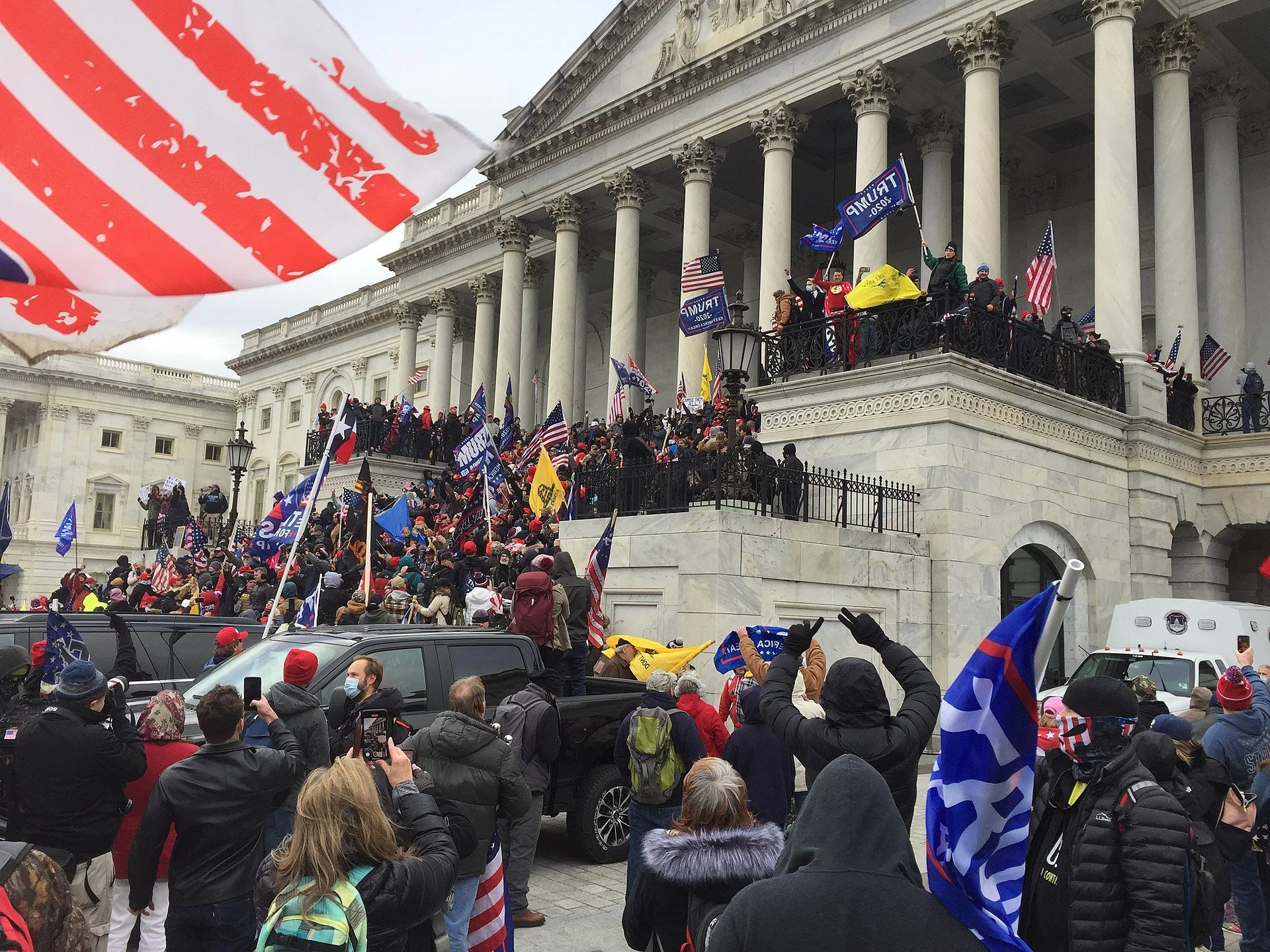Philip K. Howard: How to fight back against the forces that are tearing apart America: End the ‘vetocracy’
Trump supporters crowding the steps of the Capitol on Jan. 6, 2021 as they prepare to force their way into it to try to overturn the election won by Joe Biden.
— Photo by TapTheForwardAssist
NEW YORK
What can we do about our country? That’s the question I hear most often. Washington is mired in a kind of trench warfare, with no prospects of forward movement. And Americans today can be divided into two camps: discouraged or angry.
Americans are retreating into warring identity groups as extremists demand absolutist solutions to defeat the other side. It’s nighttime in America.
Yet, Americans still share basic values of self-reliance, tolerance and practicality, surveys show. Put Americans in a crisis, and unfailingly they put themselves on the line to help their fellow citizens, as essential workers did during the COVID-19 lockdowns.
Do we really hate each other? I don’t think so. We’re being forced apart by organized forces that profit from polarizing the country.
Extremists have the stage, and are relishing their new power to cow reasonable people into unreasonable positions — whether to deny the results of elections or benefits of vaccines, or to demand that most Americans wear hair shirts because of the sins of their ancestors.
Political insiders are manipulating extremism to their own goals. Political parties no longer compete by accomplishment but by stoking fears that the other side is worse.
The bottom line: Washington will not pull America back from the extremist precipice.
New leaders are obviously needed. But new leaders are not sufficient. Remember that Barack Obama promised “change we can believe in.” When that didn’t work out, frustrated voters (albeit with almost 3 million fewer votes than Hilary Clinton got) elected his polar opposite, Donald Trump, who promised to “drain the swamp.” Nothing much changed except more frustration, leading to greater extremism.
A new governing vision is needed – one that appeals to common interests while also responding to our frustrations. To talk polarized Americans off the precipice, we must understand how we got to the edge of this cliff.
The root cause of extremism, throughout history, is often a sense of powerlessness. Humans have an innate need for self-determination and opportunity. Can you do and say what you think makes sense? If not, sooner or later, you will want to break out. The Tea Party, Occupy Wall Street, Black Lives Matter, Stop the Steal: All these recent movements are ignited by a sense of powerlessness.
Government controls decision-making
What Obama and Trump failed to comprehend is this: The operating philosophy of modern government does not honor the role of human judgment in social activities. Instead of providing an open framework of goals and principles, activated by people taking responsibility, government strives to supplant human agency altogether.
At every level of society, Americans have been disempowered from making the choices needed to move forward. The operating structures of modern society are versions of central planning – dictating exactly how to do everything.
Why do Americans feel powerless? Because they can’t make a difference, and neither can their elected officials.
A new governing vision is needed to address this powerlessness. What I propose is to restore the human responsibility model that the Framers envisioned. As James Madison put it, giving responsibility to “citizens, whose wisdom may best discern the true interest of their country.”
Law should set goals and boundaries, but leave implementation to responsible people. Our protection from bad choices is accountability, not mindless compliance. "No man is a warmer advocate for proper restraints," George Washington wrote, but you cannot remove “the power of men to render essential services, because a possibility remains of their doing ill.”
Building an open governing framework activated by human responsibility is not difficult – it’s far easier to articulate goals than to dictate the details of implementation. Look at any organization or agency that works tolerably well, and you will find people focusing on the goals, not legalities.
But this new governing vision represents a radical departure from the status quo. No longer can bureaucrats avoid responsibility by being sticklers for rules. No longer can one lousy teacher or loud parent get what they want by demanding their rights. People in charge will actually be in charge, and will be empowered to act on their judgment. Other people will be empowered to make the judgments to hold them accountable.
America has become a 'vetocracy'
The federal government will never return willingly to a governing philosophy built on the foundation of human responsibility. All the detailed rules and red tape may prevent forward progress, but they empower insiders to block anything they don’t like. The power in Washington is the power of veto – a governing structure that political scientist Francis Fukuyama calls a “vetocracy.”
Change must come from the outside. The vision for change is to replace red tape with human responsibility. Let Americans use their judgment again. Instead of compliance, give people freedom to hold others accountable.
This is how a free society and democratic government is supposed to work. Instead of driving Americans into warring camps by trying to force one conception of the good, this vision can unite Americans by empowering them to shape their own conception of the good within broad legal boundaries.
Allow Americans to make things work again, and the darkness will soon turn into morning.
Philip K. Howard, a lawyer, author, New York civic and cultural leader and photographer, is founder and chairman of Common Good, a legal- and regulatory-reform nonprofit organization. His latest book is Try Common Sense: Replacing the Failed Ideologies of Right and Left. Mr. Howard is a friend and former colleague of New England Diary’s editor, Robert Whitcomb, who has worked on several Common Good projects in the past.
